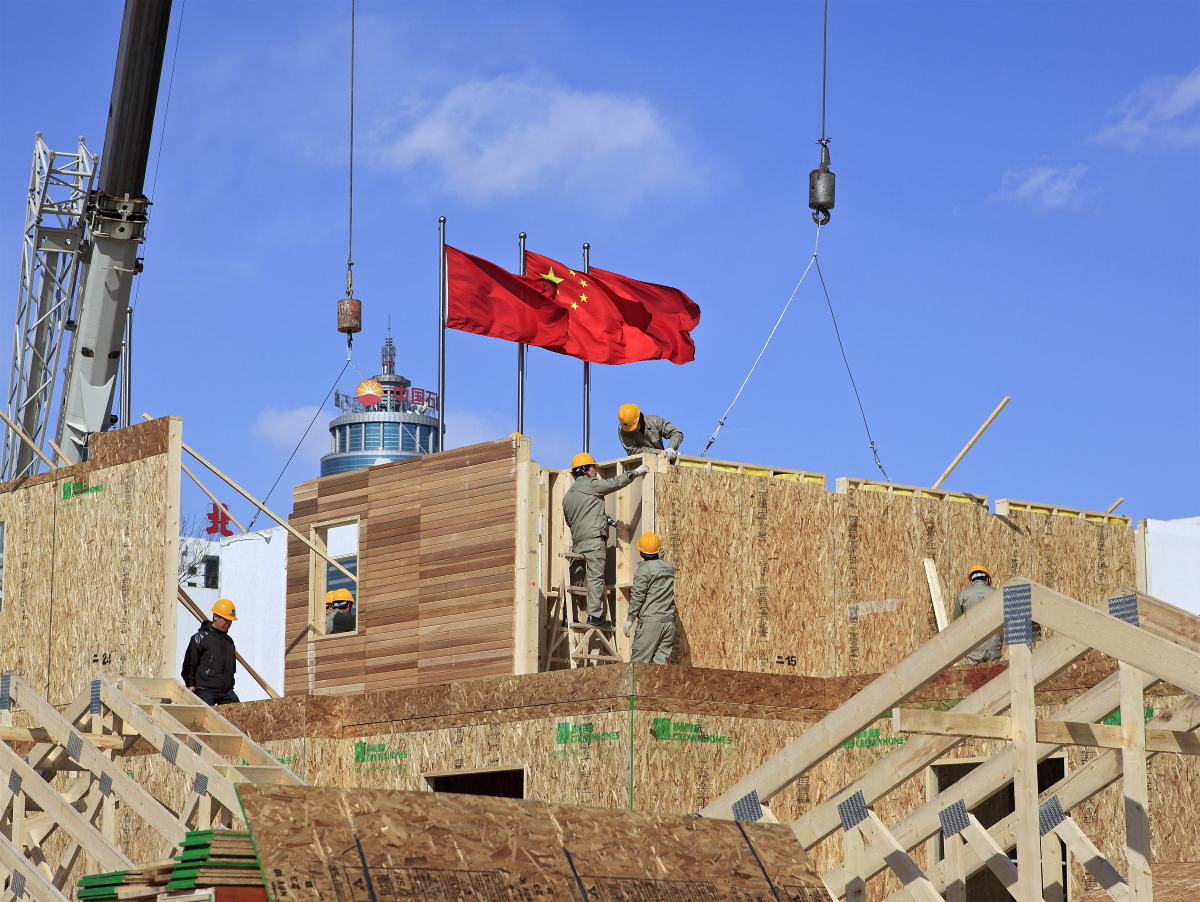Once carrying the torch of economic growth, China’s real estate sector has now become the biggest drag on Beijing’s GDP ambitions as several property developers are defaulting on bond payments. China’s property debt crisis has severely hit regional banks and the situation has been likened to the Lehman Brothers crisis.
While Beijing has been attempting to support the real estate sector, investors are now focused on the protests and boycotts initiated by multiple stakeholders. Homebuyers in various cities across China have stopped paying mortgages as property developers have halted the construction of certain projects. Some of these developers include the infamous China Evergrande Group and Sinic Holdings, and an estimated 300 projects across 91 cities have been hit by protests.
Boycotts in China real estate
The real estate industry and its related sectors such as steel account for 28% of China’s GDP, as per Moody’s. However, home sales in China have been declining for months, with weak contracted sales trending since the second half of 2021 and continuing into 2022, said a report by Lianhe Ratings Global.
Analysts estimate that between 1.5 tn yuan ($220 bn) to 2 tn yuan of mortgage loans are linked to unfinished residential projects. Investment bank Jefferies says that the four major state-owned banks, namely Bank of China, Agricultural Bank of China, China Construction Bank, and Industrial and Commercial bank of China, have the highest exposure to real estate mortgages.
“Regarding the risks of property developers, we should focus on their cash flows and their ability to tap the bond market. For those cash-tight real estate developers, they aren’t able to increase their land bank and therefore focus on completion,” ING said in a recent report.
The overall situation indicates that China is not yet at the end of the road when it comes to bond defaults from the property sector. The defaults have hit real estate investments and home sales, cutting the funding for property developers. ING says the mortgage protests will sway homebuyers’ decision who will prefer buying homes from developers having healthy cash flows to complete projects, which in turn would sideline cash-strapped developers who are struggling to raise money. This would create a vicious cycle of unsold inventory, unfinished projects, and difficulty in accessing bond markets.
The protests by homebuyers have caught the attention of Chinese authorities, and the China Banking and Insurance Regulatory Commission (CBIRC) recently asked banks to extend credit lines to real estate developers. The move was seen as China’s first attempt to ease the borrowing restrictions it placed on the property sector last year. The regulator also nudged banks to solve the hard funding gaps for developers and strengthen communication with customers to maintain the stable operation of the real estate market.
Impact on the financial sector
While the banking regulator is working on extending credit facilities to the property sectors, suppliers to Chinese real estate developers are now emulating the homebuyers’ protest and are refusing to pay bank loans unless they are paid their dues by developers. “We decided to stop paying all loans and arrears, and advise our peers to decline any requests to be paid on credit or commercial bill,” said a group of small businesses and suppliers in a letter that is circulating online in China. The group said it holds Evergrande responsible for any impact on the supply chain.
However, the problem runs much deeper into the financial sector, with property loans making up a huge chunk of the total outstanding loans of Chinese financial institutions. Chinese banks are owed about 38 tn yuan ($5.6 tn) in residential mortgages and another 13 tn yuan ($1.9 tn) by the beleaguered property developers.
“The property market is the ultimate foundation for financial stability in China, and the banking system is highly exposed. Home mortgages account for about 20% of total bank loans, and developer loans comprise an additional 6%. Beyond these two loan categories, property serves as collateral for many other corporate and household loans,” Gabriel Wildau, managing director at US-based advisory firm Teneo, wrote in an article.
Eroding credit quality in China
China’s debt markets are also in a state of turmoil, as prices of high-yield dollar notes are likely to hit a record as the liquidity crunch in the property sector hits banks, said Bloomberg in a report. The outlook for China’s credit market has turned negative as more developers are likely to default in the coming weeks, potentially spreading the liquidity crunch to healthy developers and impacting their cash flows.
“The receding tide of liquidity has revealed the weaker swimmers. Recent auditor resignations or delay in releasing audited financial statements, coupled with the previously unreported debt issues, is hampering transparency and governance and spooking investors,” S&P Global said in a research report back in April.
The yield spread between China’s one-year and 10-year bonds widened to 93 basis points earlier this week, the most since June 2020. The People’s Bank of China is unlikely to tighten liquidity immediately, even as central banks around the world realign their monetary policies in response to inflation. Additionally, lower borrowing has left banks with more cash in hand.
Meanwhile, Zhengzhou city in China’s Henan region, the epicentre of the mortgage boycotts, is setting up a state-backed bailout fund for the property sector. Local governments in Chongqing and Ningbo are also deliberating over similar solutions to nudge property projects towards completion.
– With assistance by Sakshi Dahiya










 Australia
Australia China
China India
India Indonesia
Indonesia Japan
Japan Malaysia
Malaysia Philippines
Philippines Singapore
Singapore South Korea
South Korea Taiwan
Taiwan Thailand
Thailand Vietnam
Vietnam Germany
Germany Hong Kong
Hong Kong USA
USA Switzerland
Switzerland Singapore
Singapore
 United Kingdom
United Kingdom








